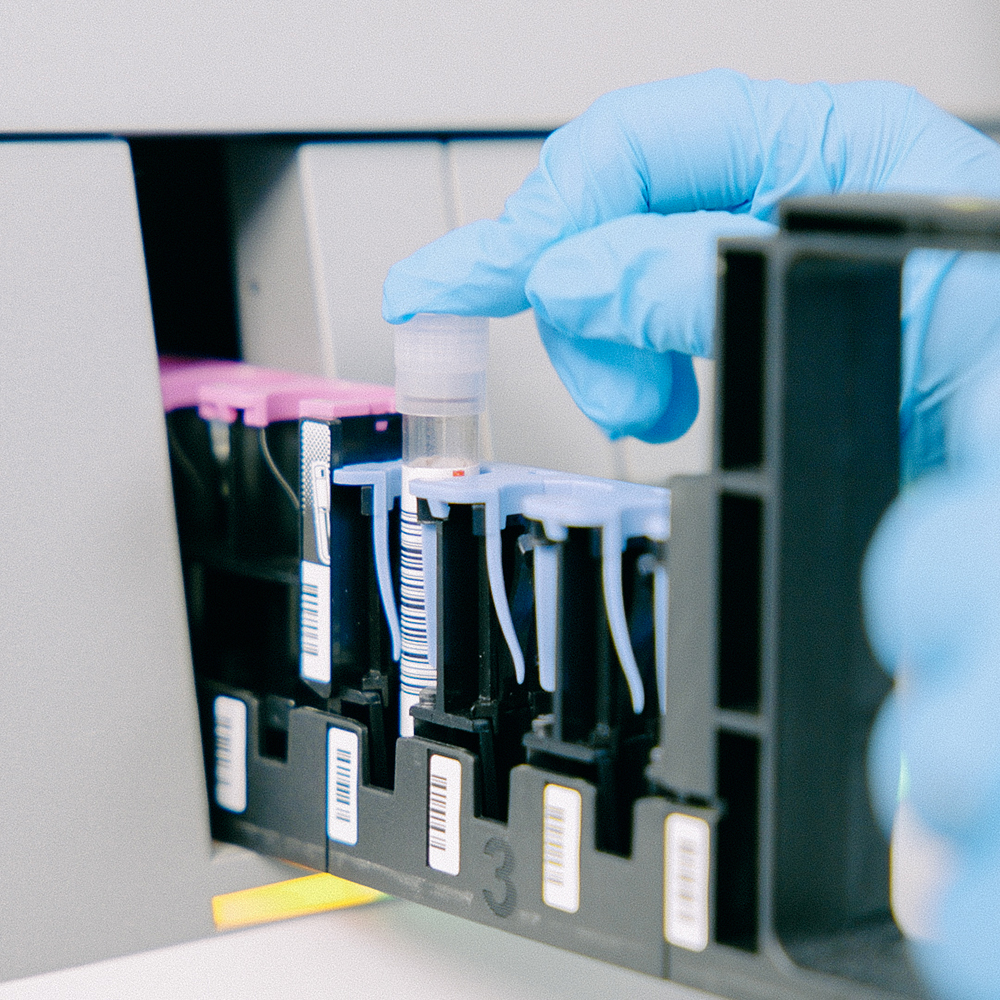Liver function blood test
£68.00
-
Results within 24 hours
-
Blood draw included
What does this test measure?
Our Comprehensive Liver Function Blood Test analyses the following biomarkers:
- Bilirubin: A waste product generated from the breakdown of red blood cells, elevated levels can indicate liver problems or anemia.
- Alkaline Phosphatase (ALP): An enzyme found in the liver, bones, and other tissues; high ALP levels can suggest liver disease or bone disorders.
- Aspartate Aminotransferase (AST): An enzyme primarily found in the liver and heart, elevated AST levels can indicate liver damage.
- Alanine Aminotransferase (ALT): An enzyme mainly found in the liver, high ALT levels are often a sign of liver injury.
- Gamma-Glutamyl Transferase (Gamma GT): An enzyme involved in amino acid metabolism, elevated levels may point to liver disease or alcohol abuse.
- Total Protein: Measures the total amount of proteins (albumin and globulin) in the blood, abnormal levels can indicate liver or kidney problems, malnutrition, or other health issues.
- Albumin: A protein produced by the liver, low albumin levels can be a sign of liver disease, malnutrition, or inflammation.
- Globulin: A group of proteins involved in immune function and transporting other proteins, abnormal levels can indicate liver or immune system issues.
- Lactate Dehydrogenase (LDH): An enzyme found in most tissues, high levels can signify liver damage or other tissue injury.
- Creatine Kinase (CK): An enzyme involved in energy production, elevated levels can indicate muscle damage or other issues, including liver disease.
Why Test for Liver Function?
Regular liver function testing is crucial for several reasons:
- Early detection: Detecting liver problems early can help prevent severe complications and improve the chances of successful treatment.
- Monitoring liver disease progression: Tracking your liver’s health helps assess the effectiveness of ongoing treatment and enables adjustments if necessary.
- Identifying risk factors: Understanding the state of your liver can help you make informed decisions about lifestyle changes to minimize potential risks and complications.
- Medication monitoring: Some medications can affect liver function; periodic testing helps ensure your liver remains healthy while taking these drugs.
How to Prepare for the Test
To ensure accurate results, follow these simple steps:
- Fast for 8-12 hours before the test, as certain biomarkers can be affected by food intake.
- Avoid alcohol for at least 24 hours before the test, as it can temporarily elevate some liver enzymes.
- Consult with your healthcare provider about any medications you are taking, as some drugs can impact test results.
Common Symptoms of Liver Disease
- Jaundice: Yellowing of the skin and eyes due to the build-up of bilirubin, a common sign of liver dysfunction.
- Fatigue: Persistent tiredness or weakness can indicate that the liver is not effectively processing nutrients or removing toxins.
- Abdominal pain: Discomfort or pain in the upper right area of the abdomen, where the liver is located.
- Swelling: Accumulation of fluid in the abdomen (ascites) or lower extremities (edema) can occur due to liver damage.
- Dark urine: Impaired liver function can lead to dark-coloured urine, resulting from an excess of bilirubin.
- Pale, bloody, or tar-coloured stools: Abnormal stool coloration can result from issues with bile production or flow in the liver.
- Nausea and vomiting: Digestive problems and a reduced appetite may indicate liver dysfunction.
- Itchy skin: Build-up of bile salts in the skin can cause itchiness or irritation.
- Unexplained weight loss: Inability to properly metabolize nutrients can lead to weight loss, even without changes in diet or exercise.
- Bruising and bleeding: Liver problems can impair blood clotting, leading to easy bruising or prolonged bleeding.
Should I take this test?
If you experience any of these symptoms or have concerns about your liver health, it is essential to consult a healthcare professional for further evaluation. Regular liver function testing, even in the absence of symptoms, can help identify liver issues early, allowing for prompt intervention and better health outcomes. Take control of your liver health today by scheduling a Comprehensive Liver Function Blood Test.






